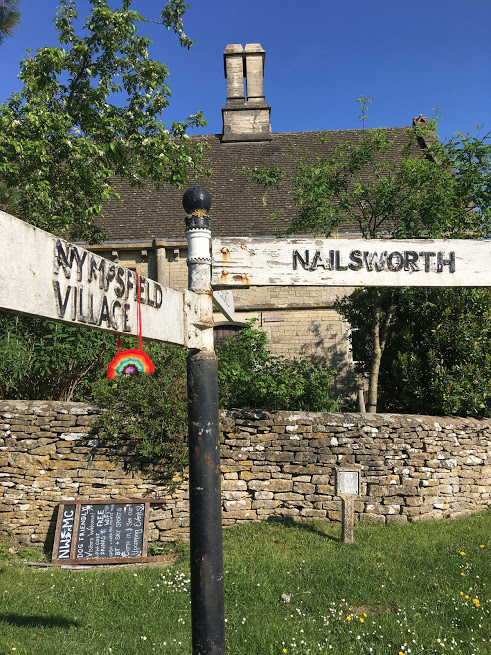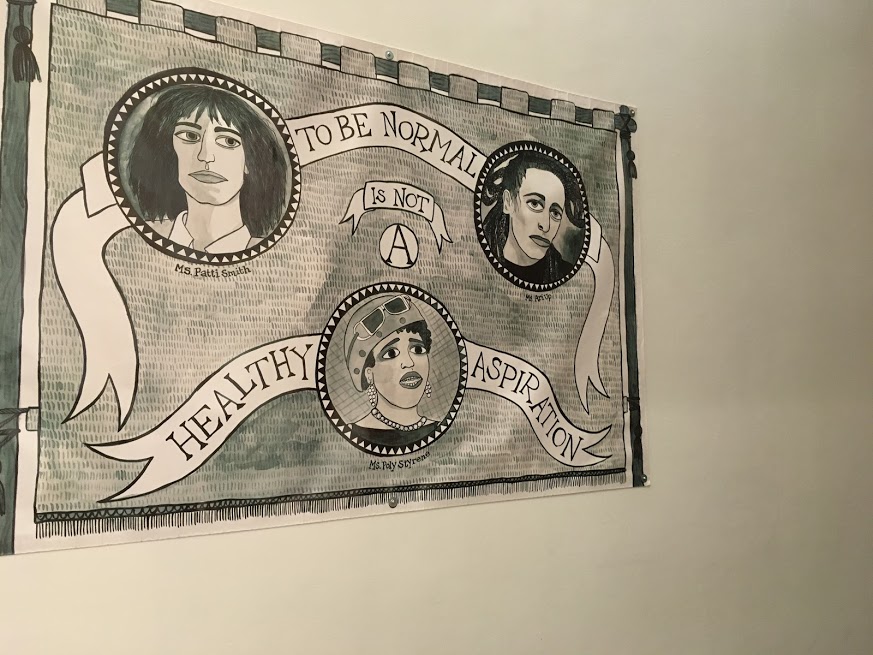This Week’s Bit of String: Half a Donut
I used to work in a nursing home. One day we walked into the staffroom for a quick morning break and found a box of donuts on the table. “It’s Carers Appreciation Day!” said a note taped to it. “Feel free to cut yourself half a donut as a reward for your hard work.”
We were underwhelmed. The large, privately-owned home was always trying to save costs, cutting down on PPE and hiring only minimal staff. They saw no problem with providing just two carers to wash, toilet, dress, and feed eighteen residents at a time. We often had to leapfrog toilets: hoist one resident out of bed, leave them half-dressed alone on the commode with their call-button, run to the next room, repeat, return to the first resident leaving the second alone… The owner flitted about in his personal helicopter while we didn’t have the luxury of shutting ourself in one room with one person to properly clean and dress them.
But we got half a donut, once a year.
This was ten years ago. As we clap for frontline workers, I’m mindful of how difficult their jobs were before COVID-19 appeared. We need to make more noise than just applause to ensure conditions for some of our most valiant workers and their vulnerable clients improve.
Assessing the Wreckage
I worked in the nursing home after a few months’ employment at the Lidl supermarket chain, and before being a teaching assistant. All these are now frontline jobs, and they were overloaded already. Before, no one noticed. People don’t like to dwell on what becomes of the elderly once they’re tucked away in a “home,” and people don’t want to consider how some shops manage to sell a pack of chicken for three quid. It’s mainly working classes and immigrants in those roles, so who cares? Now, we have to think about it, because when other people aren’t looked after, they can unwittingly pass illness to our loved ones or ourselves.

These are the kinds of jobs my characters have, their energy replaced by a frenzied faith in their labour. In my novel The Wrong Ten Seconds, which I’ve been reading out on YouTube, the action starts straight away. Frustration overcomes supermarket worker Charlie, causing him to do something a bit reckless.
This starts the plot, but the conditions provoking it already existed. A crisis isn’t isolated. It’s a culmination, and sometimes a necessary catalyst to put things right. We’ve got to boldly scrutinise this disease not just to stop the pandemic, but to learn about neglected parts of society. Have we been so busy ensuring we can afford lots of holidays and home improvements, we’ve created nations too cripplingly basic to cope with an emergency?
Be Alert
Apparently this is the British government’s new mantra. It’s not entirely clear, but I guess they want us to listen for people coughing, mind our own temperatures, and possibly notify the authorities of any neighbours who allow a loved one inside their house. (Don’t worry if the house is For Sale, though, because then it’s fine to have people poking around!)
We should really be alert for governments downplaying the suffering of key workers and vulnerable groups.

- Watch for wordplay: Boris Johnson said there won’t be a return to austerity following this economic downturn. But austerity is just a word. If pay is frozen for the public sector—including healthcare workers who have worked so hard—and budgets are slashed even further for counties and schools, that’s the same thing. Force him to pull the money from somewhere else. Back taxes, maybe? Has everyone forgotten the Panama Papers? (In America, watch out for healthcare premiums going way up next year, and states having to cut budgets dramatically.)
- Make a list, check it twice: Who can you think of that might be disproportionately affected by this crisis? I made a hit list before we went into lockdown of who would need checking up on. Keep Googling for what’s going on for the homeless, for refugee camps, for Native American tribes. Check that someone’s reporting on it, share widely.
- Vote. For the love of this planet and every being on it, especially with our American elections coming up. There are people who will make this hard for you. Start planning now; assume there will still be a rampant virus and get your hands on a mail-in ballot. For downballot positions where there may be progressive candidates available, vote for people who will raise minimum wage, ensure paid sick leave, and genuinely fight for affordable healthcare availability.
- Pester. Where the elections have already happened, or where a party’s establishment has put forth a compromise candidate who’s simply promoting a return to normal, vote for the least of any evils and then make noise. Call, Tweet, agitate. Remind the world and especially politicians and business owners that “normal” was just an annual half-donut for a lot of people!
Happily Ever After
As I promised when I started reading The Wrong Ten Seconds to viewers, it will have a happy ending. It’s a realistic contemporary book, so the tough lives the characters already had aren’t going to magically change. But the crises in the book force them to face problems more honestly and with new, unexpected alliances.
That’s the best we can hope for. In real life, nothing just ends. Any awareness we manage to raise, we have to ensure it remains in focus. So let’s delve into the conditions that made this virus so dangerous when it came along, and let’s come together—from two metres apart of course—to put them right.